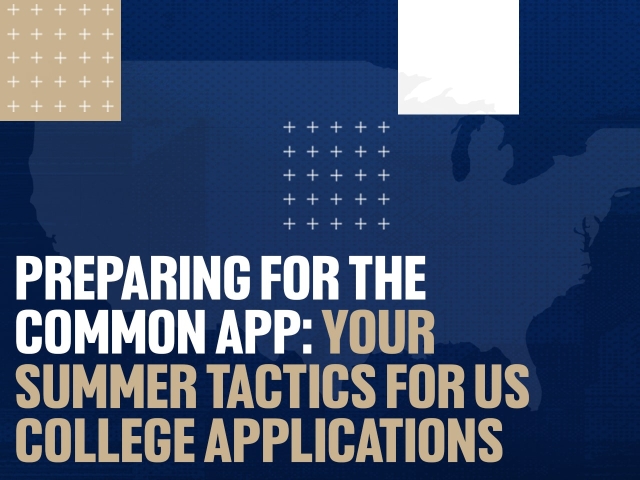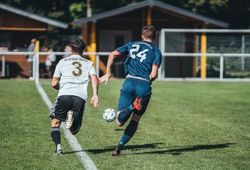Sam Warburton is widely regarded as one of the world’s best ever openside flankers and one of the finest on field leaders of the modern rugby era.
He captained Wales a record 49 times, leading them to a Six Nations Grand Slam and a Rugby World Cup Semi-Final, as well as twice captaining the British and Irish Lions on tours to Australia and New Zealand.
Sam reveals his top 3 tips on how to become an elite athlete.
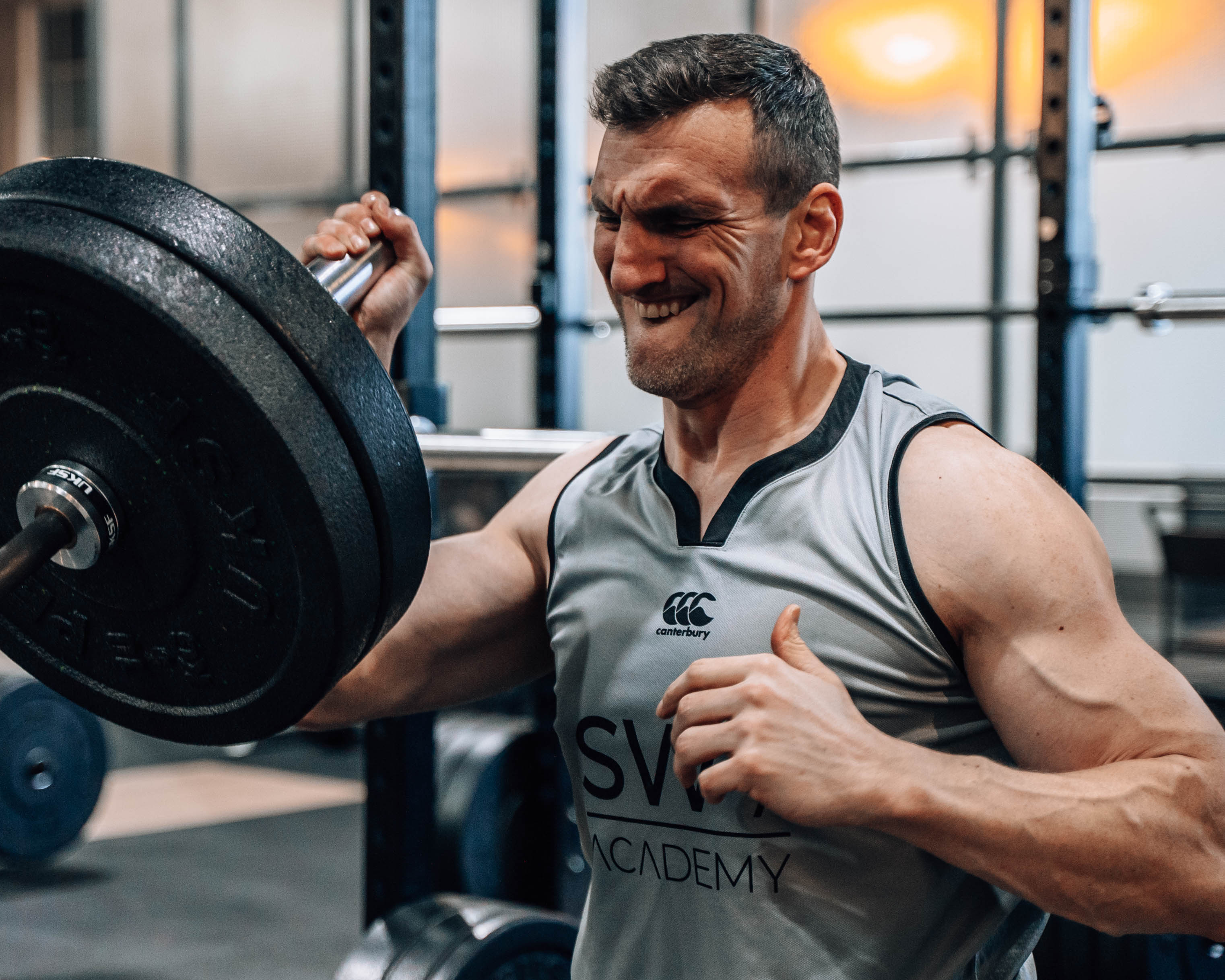
1. BUILD YOUR RESILIENCE - TRAIN YOUR MINDSET
The most resilient people get to the top because the just keep going. The ruthless competitors keep going.
Mindset is the difference between those who make it and those who don’t.
I had two operations before I was 19. I still made it because I refused to give up.
Nothing in life is easy. People think that professionals go through the academy system on a nice upward trajectory where there’s no bumps. There’s bumps everywhere.
There’s going to be someone who doesn’t believe in you. Coaches that don’t back you. Probably an injury along the way. It could be exams that get in the way.
Was I the best player at Cardiff? No.
There were some players who were physically more gifted than me, more skilful. So many players I played with I thought – if he had my mentality he would have played for Wales at 18.
It’s an interesting question – is mentality a privilege or is it something you can train yourself. I think it is something certainly you can work on.
Your big game players come out and fight even though they are feeling the nerves and anxiety.
When you feel those nerves, think this is when I can go back in my shell or come out and put on a show.
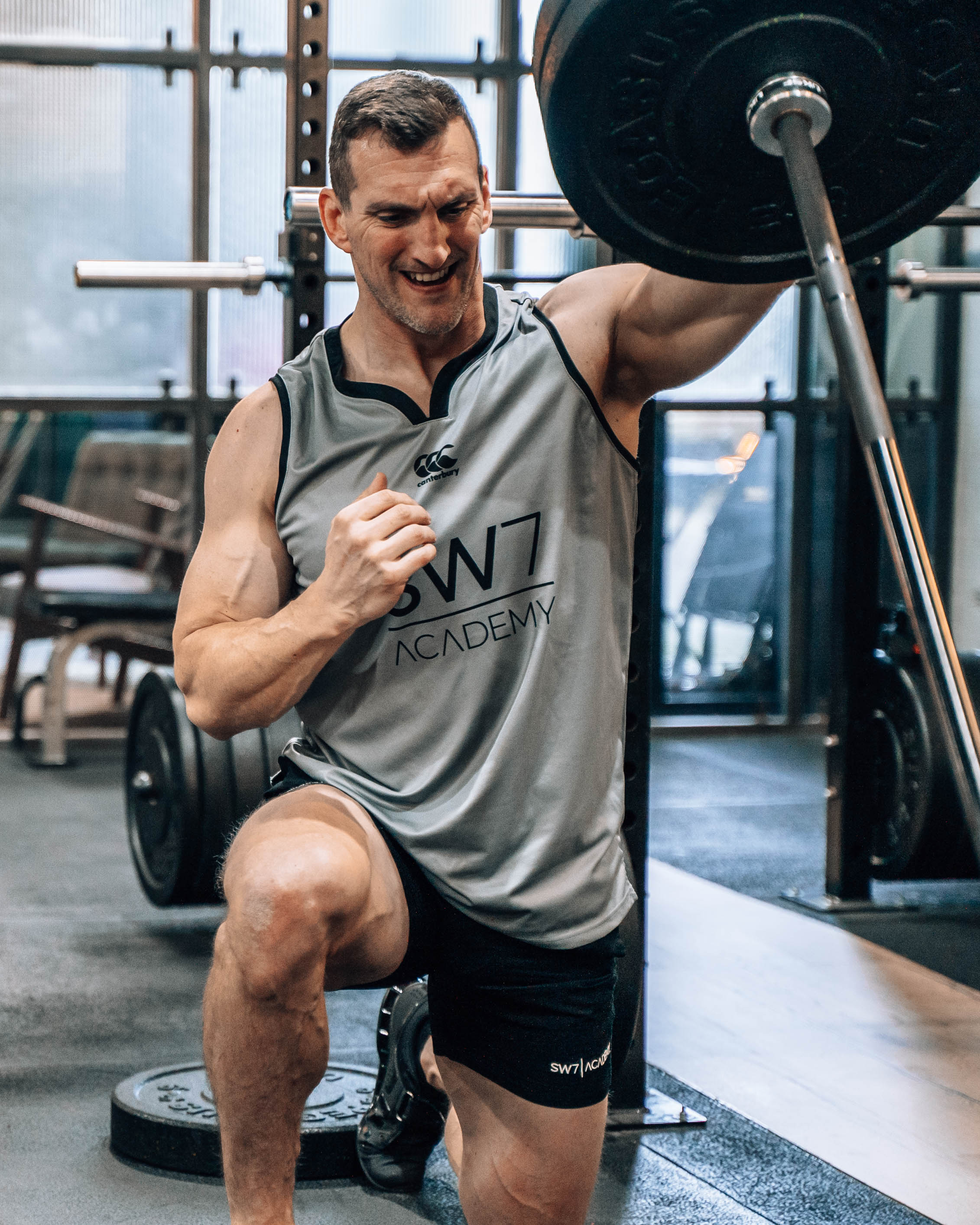
2. BE PATIENT - PLAY THE LONG GAME
As teenagers it’s not what you want to hear, but you’ve got to play the long game if you want to make it.
Sometimes when you’re young it feels like you’re missing out on stuff. I can promise you if you play the long game, it is worth it.
Nobody makes it in 12 weeks or in six months. Anyone who has got to the top of their field has done the boring mundane things that need to be done, consistently.
If you train in the gym three times a week instead of two times, that might not sound like a lot but over the course of a year that is 50 sessions. The physical development you will gain from doing an extra 50 sessions, and take that over three years, now you start to see the gulf in a freaky 20-year-old who’s rocking up playing professional rugby.
I went to school with Gareth Bale. I was seeing him going down to Southampton after school everyday and training at lunchtimes and I was doing the same thing. We realised we were getting pretty good because no one else was doing what we were.
When you see an athletically gifted 20-year-old, yes there are some genetics involved, but he’s probably done everything most 16-17 year olds weren’t willing to do.
I had a twin brother who was 3 stone lighter than me that shows how manufactured my weight gain was!
If you’re 15 reading this now, you’re going to be on a journey.
Enjoy yourself, do things that normal teenagers do. I still socialised and enjoyed time with my friends.
Finding the right time and environment is good, because you need to break away from sport. You need your friends and that support network around you for the tough times.
I had a good social life, but I did turn down a lot of sixth form parties because I knew that wasn’t going to be good for my recovery and physical development.
Even if it was only a small tiny physical gain, the mental gain I got from that was enormous because when I play I think there’s no way in hell these people are prepared as me.
To get to a place that most people don’t get to, you’ve got to be willing to do what most people are not willing to do.
From the age of 14 I probably committed myself unusually to my mates. Regarding my training, diet, mentality.
After six years when you’re 21 and made it to an international level or professional level in your discipline, you’ll look back and think the sacrifice is worth it.

3. PUT THE WORK IN AND YOU WILL GET IT BACK LONG-TERM
“You’ve to be that person who wants to set the bar to a level where other people don’t want to set it.”
What you put in in life is what you’ll get out. Put the work in and over the long-term you will get it back
When Connor McGregor the MMA fighter said “I wasn’t talented I was obsessed” I could resonate with that a little bit.
I remember when I got my first cap, I probably didn’t say this because I didn’t want to sound arrogant, but I remember thinking this is what I expect to happen.
I wanted to be one of the best players that have played. I wanted to play for the British and Irish Lions. Not just be better than this kid who’s in my school, or who plays in Cardiff where I’m from.
I had to be the best in Wales, England, Scotland and Ireland, and over a 15-year age range to play for the Lions.
It’s not always about training when you feel like training, sometimes you just got to put the work in. Then you’ve earned those championship hours. Nobody sees but you just know that you are building that bank slowly.
The psychologist at the Lions once told me
“Every training session you have done since you were 14, everything you have put in your body, has built you to this point. 15 years of work has gone into this athlete.”
The confidence you can gain for that can be massive once you’ve got that bank of work in. The more you do it, the bigger the confidence will grow - I guarantee it.
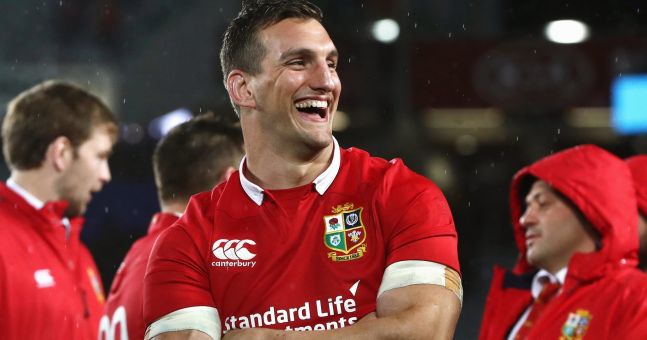
It’s quite easy to do weights three times a week. It’s quite easy to do fitness twice a week for a couple of hours and some skills sessions.
The difference with the best professionals are the 22 hours outside of training. Recovery, diet, sleep, analysis work.
When I was 15 there was a Christmas holiday I trained 20 days out of 21. It was only Christmas day that the gym didn’t open.
I remember going into the academy telling them, they’re going to love this. They loved the work ethic, but said I needed to stop, because I wasn’t allowing any time for adaption. The rest and adaption part is so important.
The training is the stimulus to force adaptation. If you don’t recover, you’re not going to reap the rewards of that adaptation.
There are players who are bad pros who make it to the top, but they don’t have the longevity in the sport that someone who’s a diligent pro does.
The people who come in and work hard, have good standards, are the ones who win respect of their teammates.
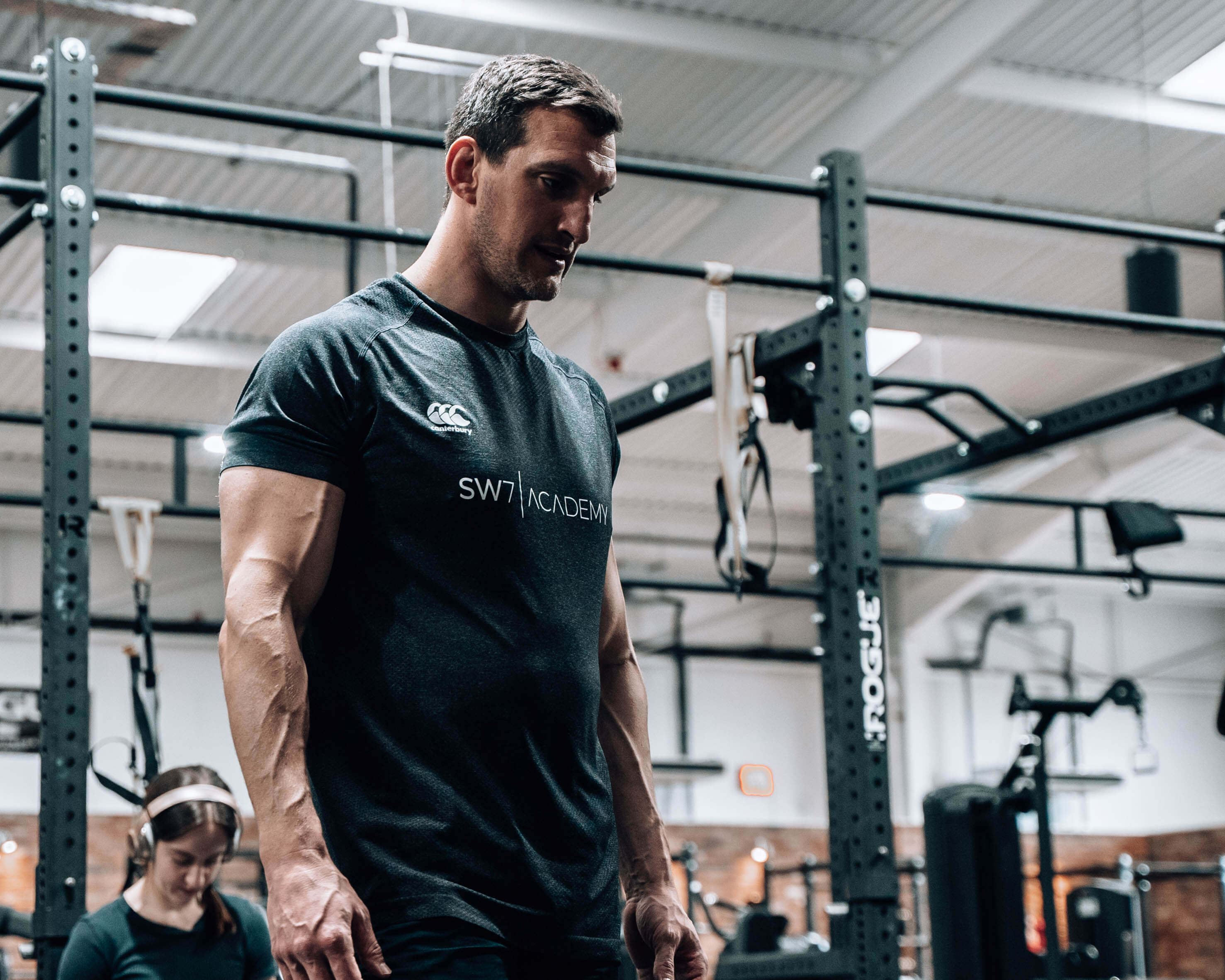
SW7 AND FIRSTPOINT USA
We are delighted to have joined forces with Sam Warburton to support aspiring student-athletes with an unrivalled strength and condition programme through the fantastic SW7 Academy app!
SW7 Academy is one of the best weight training apps available for athletes, has been developed by Sam and his team of performance coaches to improve athletic performance across all sports, and is available to FirstPoint USA clients as they build towards their sports scholarship in the States.
Our athletes get access to the exact same performance Strength & Conditioning programming only available in today’s top academies and professional teams, including gym based training programmes and recovery sessions.


